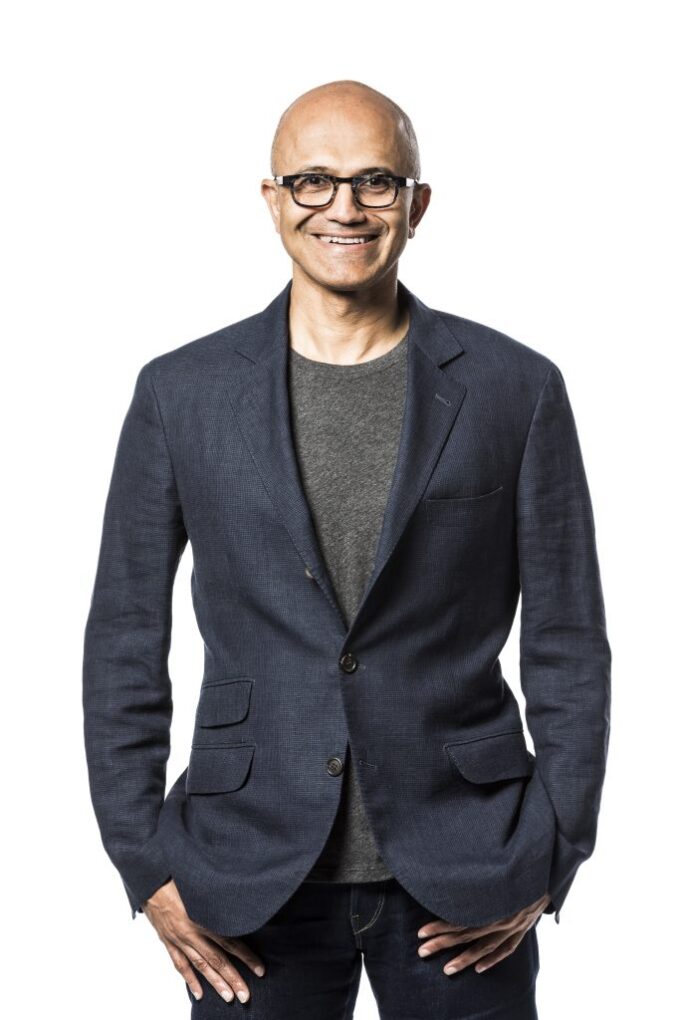
“We were so scared of our IPO”: Leaders Unplugged with former On-CEO Marc Maurer
Marc Maurer shares how ON grew from startup to IPO by defying hype, focusing on purpose, and leading with humility in this candid Leaders Unplugged episode....

by James Welch Published February 18, 2025 in Sustainability • 8 min read • 
Pacific Lumber was harvesting timber at a rate that allowed for regeneration, but its parent company ran into trouble when it went for quick profits. Image: Unsplash
Gus Levy, senior partner of Goldman Sachs in the 1970s, introduced the term “long-term greed” to describe a strategic focus on enduring sustainability in business that sought more lasting success. He aimed to establish a company that would thrive for generations, attracting consistent client loyalty. This view suggests that effective leadership requires a long-term perspective that considers wider impacts and moves beyond focusing on the short term.
Early theories of corporate leadership primarily concentrated on identifying the traits and characteristics that distinguished effective leaders from others, known as trait-based theories. This perspective emphasized that certain innate qualities – such as charisma, decisiveness, and intelligence – were the primary indicators of a successful leader. However, as research progressed, the field recognized that context, behavior, and relationships were equally critical to understanding leadership dynamics.
In the mid-20th century, the focus shifted toward behavioral theories, which suggested that leadership effectiveness was not just about inherent traits but also observable behaviors and actions. Researchers like Kurt Lewin introduced leadership styles such as democratic, autocratic, and laissez-faire, highlighting the importance of a leader’s approach to achieving organizational outcomes. The subsequent rise of contingency theories, introduced by scholars like Fred Fiedler, further refined this understanding by suggesting that no single leadership style was universally effective. Instead, effective leadership was seen as contingent upon various factors, including the organizational environment, the nature of tasks, and the characteristics of followers.
As the 21st century began, transactional and transformational leadership theories became dominant. Transactional leaders focused on exchanges of rewards and performance, while transformational leaders sought to inspire and motivate followers toward achieving higher-order goals. James MacGregor Burns and Bernard Bass, key figures in developing the theory, emphasized that transformational leaders created a vision for change, engaged followers, and drove innovation, making it particularly relevant for long-term organizational success.
However, despite this evolution, most research remained focused on the short-term impacts of leadership behavior and style. Studies often centered on immediate outcomes, such as boosting employee morale, increasing productivity, or achieving quarterly financial goals. These outcomes were typically measured within brief time frames, limiting the understanding of how leadership decisions affect long-term organizational viability. For instance, leaders with charismatic traits may quickly gain follower loyalty, but this short-term appeal does not necessarily equate to sustainable success.

The concept of responsible leadership emerged in response to the limitations of short-term-focused research. This approach diverges from traditional theories by emphasizing ethical considerations, stakeholder engagement, and long-term impact. Scholars such as Nicola Pless, Thomas Maak, and David Waldman argue that, unlike earlier models, responsible leadership requires an expanded view of a leader’s role: it does not simply measure effectiveness by immediate performance outcomes. Instead, it assesses leadership based on how ethical decision-making, environmental sustainability, and social responsibility influence outcomes for enduring organizational health, stakeholder welfare, and societal progress.
This framework has gained traction due to shifting societal expectations and increasing demand for sustainable business practices. Stakeholders, including investors, employees, and customers, are now more inclined to support organizations that adopt ethical, transparent, and socially responsible approaches. As the global business landscape becomes more complex – with challenges such as climate change, economic inequality, and technological disruption – leaders are compelled to consider the long-term implications of their decisions and strategies.
Integrating responsible leadership into organizational strategy aligns with newer approaches like environmental, social, and governance (ESG) criteria, which are now vital components of business evaluation. Leaders who effectively incorporate ESG considerations into their strategies are seen as more likely to ensure sustainable success. This strategic alignment has led to comprehensive leadership principles that address micro (individual behavior, perceptions, and emotions) and macro (organizational culture, societal impact, and environmental factors) processes. Leaders must not only inspire their teams but also build robust systems that sustain growth and progress beyond their tenure.
Responsible leadership offers a path to this kind of lasting success, shifting focus from short-term gains to enduring, impactful growth. Moving beyond traditional leadership models that prioritize immediate results, the following five keys promote a well-rounded approach that combines strategic vision, ethical integrity, and emotional intelligence. These create a robust framework for leaders dedicated to building resilient, inclusive, and ethically driven organizations.
A long-term perspective for organizational strategy, focusing on sustainable success rather than short-lived achievements, is fundamental. In a competitive landscape, many leaders are driven by the need to show immediate results, often to advance their careers or satisfy short-term stakeholder expectations. However, responsible leadership calls for a mindset shift – one that prioritizes patient, thoughtful planning over rapid, reactionary decision-making. This long-term approach involves investing in initiatives that, although slower to produce tangible results, are foundational to building a resilient organization. This key allows leaders to develop a culture that values steady growth, innovation, and adaptability, positioning the organization to withstand market fluctuations and changing demands.
This long-term perspective contrasts sharply with the case of the Pacific Lumber Company, a California-based logging firm recognized for its sustainable practices until it was acquired by Maxxam in 1985. Before the takeover, Pacific Lumber followed a sustainable yield policy, harvesting timber at a rate that allowed for forest regeneration. Afterward, Maxxam adopted aggressive clear-cutting practices to manage debt from the leveraged buyout, leading to significant environmental damage and widespread public protests. This case is widely studied in business ethics as an example of the tension between short-term, profit-driven objectives and environmental responsibility and long-term sustainability.
Organizational diversity represents a powerful means to leverage a range of perspectives, skills, and ideas that foster innovation, resilience, and the agility required to adapt to evolving market demands. As today’s markets and workforces become increasingly diverse, organizations that mirror this diversity are better positioned to understand and serve the needs of clients, customers, and communities. Leaders who actively integrate diversity at all levels – from recruitment and team composition to leadership practices and decision-making – create an environment rich in creativity, adaptability, and strategic insight. Diverse perspectives enable organizations to lay the groundwork for more comprehensive problem-solving and a deeper understanding of complex issues.

“Patagonia, a well-known example of ethical business practices, has earned deep respect, trust, and loyalty from stakeholders by prioritizing environmental and social responsibility.”
Companies like Salesforce, known for a proactive approach to diversity and inclusion, set a strong example by creating a workplace where employees from all backgrounds feel valued, respected, and encouraged to contribute. This inclusive environment not only boosts morale, engagement, and retention but also enhances the organization’s reputation among clients, partners, and investors who prioritize social responsibility.
Leaders with strong emotional intelligence (EI) offer a significant advantage to their organizations by recognizing how emotions influence behavior, decision-making, and relationships. A great example is Satya Nadella, CEO of Microsoft, who emphasizes empathy, self-awareness, and interpersonal skills alongside technical expertise and strategic vision. Under his leadership, Microsoft has cultivated a more inclusive and collaborative culture, focusing on understanding individual and team emotions. Becoming more attuned to their emotions and those of their team members, EI-driven leaders like Nadella can adapt their approaches to fit the organization’s unique dynamics, fostering trust, cohesion, and a unified workforce.
Emotional intelligence allows leaders to connect with employees on a deeper level, addressing not only professional aspirations but also individual well-being and satisfaction. Skilled in identifying unspoken concerns, resolving conflicts constructively, and offering support, EI-focused leaders create a culture of psychological safety where employees feel empowered to express ideas, acknowledge mistakes, and take calculated risks without fear of retribution. This environment of openness boosts morale and drives engagement, enabling individuals to contribute their best efforts and creative insights.
Ethical decision-making is the compass that guides leaders in navigating complex challenges with integrity. Leaders who prioritize ethics demonstrate a commitment to principles that transcend short-term gains, cultivating a culture that values transparency, integrity, and accountability. This fosters an environment where ethical considerations are woven into everyday operations, influencing everything from internal policies to external interactions. When leaders model ethical behavior, they set a powerful example that reinforces trust within the organization and motivates employees to uphold the same standards.
The impact extends beyond internal operations, serving as a foundation for building trust with clients, partners, and the broader community. Patagonia, a well-known example of ethical business practices, has earned deep respect, trust, and loyalty from stakeholders by prioritizing environmental and social responsibility. This, in turn, positively impacts customer loyalty, business partnerships, and investor confidence. Organizations in this mold are well-positioned to navigate market shifts and industry challenges, as stakeholders are likelier to back their vision and goals. In this way, ethical decision-making not only drives positive outcomes but strengthens resilience – an important differentiator in a complex, interconnected world.
Strategic vision requires leaders to see beyond immediate challenges and short-term profits to envision a long-term pathway aligned with the organization’s mission and values. It goes beyond simply setting goals; it involves crafting a roadmap that not only reflects where the organization wants to go but also how it plans to get there sustainably. This requires a deep understanding of market trends, organizational strengths, and potential obstacles. Leaders with a strategic vision continuously evaluate and refine their approach, ensuring that each step aligns with the purpose and goals of the organization. This allows leaders to anticipate changes, pivot when necessary, and stay committed to the overarching mission, even if it requires difficult short-term trade-offs.
Take, for example, Indra Nooyi, former CEO of PepsiCo, who introduced “Performance with Purpose” as a guiding principle. Nooyi redefined PepsiCo’s mission to focus not only on business success but also on positive impacts such as sustainability, health, and social responsibility. This vision fostered a shared purpose throughout the organization, engaging employees in initiatives that emphasized environmental stewardship and healthier product offerings. Nooyi’s leadership inspired a resilient, purpose-driven culture within PepsiCo, as employees were motivated to work toward a meaningful and well-defined mission.
While short-term gains may be more immediately gratifying, adopting a broader, forward-thinking perspective can lead to greater organizational effectiveness over time. The five keys offer a comprehensive approach to building organizations that are resilient, inclusive, and ethically driven. Focusing on long-term goals, fostering diversity, prioritizing emotional intelligence, making ethical decisions, and casting a strategic vision enables leaders to drive sustainable success while also contributing to social progress. This framework encourages leaders to transcend short-term pressures, building an organizational legacy that values stakeholder welfare, adaptability, and innovation.
As businesses continue to navigate an increasingly complex global landscape, these principles provide a roadmap for lasting impact, ensuring that leadership decisions today lay the foundation for a thriving, responsible future.

Associate teaching professor of management at the University of Tampa
James Welch is an associate teaching professor of management at the University of Tampa, with expertise in business strategy, corporate social responsibility, and responsible leadership. His research has been published in the Journal of Business Strategy and Law and Financial Markets Review, among others. He is a fellow of the Royal Society of Arts.

July 8, 2025 • by Alyson Meister, Marc Maurer in Leadership
Marc Maurer shares how ON grew from startup to IPO by defying hype, focusing on purpose, and leading with humility in this candid Leaders Unplugged episode....

July 7, 2025 • by Richard Baldwin in Leadership
The mid-year economic outlook: How to read the first two quarters of Trump...

July 4, 2025 • by Arturo Pasquel in Leadership
Susanne Hundsbæk-Pedersen, Global Head of Pharma Technical Operations at Roche, shares how she has navigated the various pivots in her career, and the importance of curiosity, optimism and energy. ...

July 3, 2025 • by Eric Quintane in Leadership
Entrepreneurial talent who work with other teams often run into trouble with their managers. Here are ways to get the most out of your ‘boundary spanners’...
 Audio available
Audio availableExplore first person business intelligence from top minds curated for a global executive audience